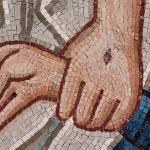On September 12, 1960, a young Democratic presidential nominee named John F. Kennedy made history. Addressing a group of Protestant ministers in Houston Texas, he swore – despite his Roman Catholic background – to uphold a belief in the First Amendment of the Constitution of the United States, which allows for freedom of religion and advocates a separation between church and state. Kennedy was effectively making religion redundant in American public life.
When he was elected the following January, Kennedy set a trend in the White House. For the next 16 years, a president’s choice of church seemed to have no effect on American voters. Lyndon Johnson worried more about how Vietnam and the Civil Rights Act would affect his presidency, than he did about his association with the Church of the Disciples of Christ. Similarly, voters seemed to barely notice Nixon’s Quaker background.
But post-Watergate, a change occurred. The United States had just witnessed a drastic constitutional crisis, after Richard Nixon poisoned the chalice of the US presidency by lying about his knowledge of a 1972 break-in at the Democratic Party headquarters. By 1976, two years after Nixon’s resignation, the American people wanted a man with a strong set of moral values. So when a peanut farmer and Baptist Sunday school teacher from Plains, Georgia, promised he would “never knowingly lie to the American people”, voters listened with enthusiasm. Jimmy Carter’s initial appeal as a candidate lay with his outsider status. This connected him to ordinary Americans.
Randall Balmer reminds us of this fact at the beginning of his new book Redeemer: The Life of Jimmy Carter. At the heart of his narrative is a thesis which states the following: Jimmy Carter’s electoral defeat in 1980 signaled not just a victory for Ronald Reagan, but it transformed the way that the evangelical faith has been understood in the United States ever since.
Read the rest here















